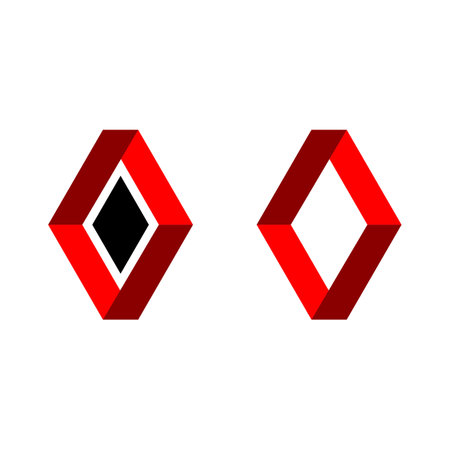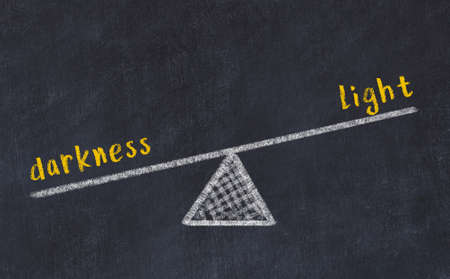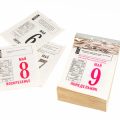Understanding Numerology in the British Business Landscape
In the heart of Britains entrepreneurial spirit, numerology weaves an invisible yet compelling thread through both the cobbled lanes of tradition and the fast-paced avenues of modern business. For centuries, British merchants and innovators have sought guidance from numbers—not merely as tools for accounting, but as mystical signposts pointing towards prosperity or caution. Today, amidst fintech startups in London and family-run shops in Yorkshire, numerology is experiencing a renaissance, blending historical roots with present-day ambition. This subtle art, once whispered about in drawing rooms and private clubs, now finds its place in boardrooms and branding meetings. The fascination? Numbers carry stories, energies, and patterns that many believe can unlock clarity in uncertain markets. Whether it’s choosing a company name, setting launch dates, or mapping out growth cycles, British entrepreneurs increasingly turn to numerological wisdom to harmonise intuition with strategy. In this uniquely British context—where reverence for heritage meets a hunger for innovation—numerology stands not as superstition but as a bridge: linking the lessons of the past with the limitless possibilities of tomorrow.
2. Chaldean Numerology: Ancient Insight for Modern British Enterprises
The ancient art of Chaldean numerology, with its mystical roots tracing back to Babylonian times, has found renewed resonance in the heart of contemporary British business culture. Unlike other systems, Chaldean numerology places a unique emphasis on the vibrations of both names and numbers, believing that every letter carries an energy influencing one’s destiny. In the UK, where tradition and innovation often walk hand-in-hand, an increasing number of entrepreneurs and executives are turning to this esoteric practice to guide their decisions.
The Mystical Allure: Why British Leaders Are Drawn In
There’s a quiet wisdom in Britain’s cobblestone streets and historic boardrooms—a sense that hidden patterns shape our reality. Chaldean numerology appeals to this intuition, offering more than mere calculation. It invites leaders to listen deeply to the subtle frequencies underlying their brand names and company visions, seeking harmonious alignments that foster trust, prosperity, and resilience.
Interpreting Chaldean Energies in Company Branding
Branding is more than logos or slogans; it’s an energetic signature. UK business leaders have started consulting Chaldean experts when naming new ventures or rebranding established firms. They believe that the right vibrational match can attract loyal customers, inspire teams, and even smooth bureaucratic pathways. For instance, consider the following table illustrating Chaldean values assigned to each letter:
| Letter | Chaldean Value |
|---|---|
| A, I, J, Q, Y | 1 |
| B, K, R | 2 |
| C, G, L, S | 3 |
| D, M, T | 4 |
| E, N, H | 5 |
| U, V, W, X | 6 |
| O, Z | 7 |
| F, P | 8 |
This simple yet potent mapping allows for a bespoke analysis of potential company names—helping leaders choose those with auspicious energies.
Strategic Decision-Making Through Numerological Guidance
Savvy British executives don’t stop at branding; they delve deeper into using Chaldean insights for strategic planning and leadership selection. Some interpret key dates—such as launch days or mergers—through a numerological lens to identify moments of heightened opportunity or caution. Others use personal name analysis within executive teams to ensure compatible leadership dynamics. While some may view these practices as unconventional in a data-driven world, there is growing anecdotal evidence across the UK that companies aligning with positive numerical energies enjoy smoother growth and greater workplace harmony.

3. Pythagorean Numerology: Rational Alignment for British Success
In the landscape of British business, clarity and structure are often the cornerstones of trust and long-term partnerships. The Pythagorean system of numerology, with its straightforward alphabet-to-number correspondence, fits seamlessly into this tradition of logical thinking. Originating from ancient Greece but popularised in the West, the Pythagorean method simplifies the process of translating names and company titles into meaningful numbers. This sense of order appeals deeply to the British way of doing business, where transparency and reasoned decision-making hold sway.
The Appeal of Structure in British Enterprise
Unlike some mystical or esoteric systems, Pythagorean numerology offers a clear framework that can be easily explained in boardrooms and planning meetings. Each letter is assigned a value from 1 to 9 in a recurring sequence, making calculations not only accessible but also repeatable—a trait much valued in British corporate culture. This systematic approach echoes the practical mindset found throughout British commerce, from high-street shops to multinational firms headquartered in London’s financial district.
Popularity in the West: A Tradition of Logic
The popularity of Pythagorean numerology across Western countries is no coincidence. Its emphasis on logic and pattern recognition resonates particularly well within British society, which has a long history of valuing rational debate and empirical evidence. In fact, many entrepreneurs quietly consult numerologists who specialise in this system when naming new ventures or forming business partnerships—seeking alignment between numerical vibration and brand ethos.
Pythagorean Numerology and Modern British Partnerships
British business relationships are built on reliability and shared understanding. The Pythagorean method’s transparent calculations foster a sense of fairness and mutual benefit, allowing both parties to feel confident that their collaboration is grounded in more than just intuition—it is supported by a logical framework. For forward-thinking leaders seeking success in the UK market, embracing this rational yet subtly spiritual tool may offer just the edge needed to stand out, thrive, and build legacies that last for generations.
4. Comparing the Methods: Choosing the Right Fit for Your UK Business
When British entrepreneurs seek guidance from numerology, the choice between Chaldean and Pythagorean systems is not merely academic—it can shape a company’s ethos and trajectory. Let’s delve into their practical applications, outcomes, and how they align with UK business values of integrity, innovation, and tradition.
Practical Differences in Approach
| Aspect | Chaldean Numerology | Pythagorean Numerology |
|---|---|---|
| Origin & Popularity | Ancient Babylonian roots; less mainstream in Britain | Greek origins; widely recognised and used in Western numerology circles |
| Number Assignment | Based on sound vibrations; letters assigned 1-8 only | Alphabetically sequential (A=1 to Z=26, reduced); uses 1-9 system |
| Focus | Name-based destiny and vibrational resonance | Personality analysis, life path, and practical potential |
| Sensitivity to Change | Highly sensitive—minor spelling changes can shift outcomes drastically | More stable—name variations have less dramatic impact |
| Cultural Adaptation | Less tailored to English phonetics; may feel esoteric for some UK businesses | Easily adapted to modern British names and branding conventions |
Potential Outcomes: Local Case Snippets
The Chaldean Path: A boutique tea shop in Cornwall rebranded using Chaldean numerology, adjusting its name to evoke prosperity vibrations. The result? An increase in footfall after subtle name tweaks. Yet, the owners noted that communicating the logic behind their change required storytelling—a hallmark of British culture.
The Pythagorean Way: A Manchester tech start-up used the Pythagorean method to select a company name aligning with a Life Path Number 1, embodying leadership and innovation. Their pitch at a local accelerator event resonated with investors who valued clarity and forward-thinking energy, reflecting contemporary UK business values.
Which System Fits British Values?
- Tradition & Heritage: Chaldean appeals to those valuing mystical depth and ancient wisdom—perfect for heritage brands or artisanal ventures.
- Clarity & Modernity: Pythagorean suits businesses aiming for transparent communication and adaptability—especially relevant in dynamic sectors like fintech or creative agencies.
- Storytelling: Both systems invite narrative—a cherished element in British branding—but Chaldean’s esoteric touch may require more explanation, while Pythagorean offers straightforward relatability.
Decision Points for UK Businesses
- If your brand leans on tradition and nuanced storytelling, Chaldean may imbue your name with unique resonance.
- If you desire broad appeal and easy integration with digital branding tools, Pythagorean offers simplicity aligned with UK pragmatism.
- The most successful British businesses often blend intuition with practicality—consider consulting both systems before making your final choice.
The Intuitive Takeaway for British Entrepreneurs:
Naming your business isn’t just numbers—it’s the story you tell your customers and the energy you bring into the marketplace. Whether you choose Chaldean or Pythagorean numerology, let your decision resonate with both your vision and the values cherished by your UK clientele.
5. Blending Intuition and Strategy: Numerology’s Role in British Entrepreneurship
Across the cobbled streets of London to the innovation hubs in Manchester, British entrepreneurs have long balanced tradition with modernity. In this uniquely British context, numerology is not merely a mystical curiosity—it becomes a quiet force guiding decisions from boardrooms to boutiques. Seasoned business leaders often blend number-based insights from systems like Chaldean and Pythagorean numerology with their own honed intuition. This fusion creates a subtle alchemy where analytical rigour meets gut instinct.
The Subtle Dance: Numbers Meet Instinct
Within the UK, there’s an understated appreciation for both history and innovation. Entrepreneurs might consult a numerologist before naming a start-up or launching a product, yet they also trust the quiet nudge of intuition shaped by years of experience. It’s not uncommon for founders to discuss growth plans over tea, referencing both market forecasts and the “feel” of a venture’s numerological signature—a practice that feels at once mystical and deeply pragmatic.
Tradition as Foundation, Mysticism as Edge
British business culture cherishes its traditions—formalities, etiquette, and respect for legacy. Yet, it welcomes unconventional tools when they offer an edge. Numerology weaves itself into this landscape as an additional lens: decisions are weighed against practical realities and timeless wisdom, but numbers sometimes tip the scales when choices are finely balanced. For many, it is less about fate and more about aligning energies with intention.
A Quiet Revolution in Decision-Making
This integration of numerology is rarely brash or flamboyant; rather, it’s woven quietly into strategic thinking. From small family businesses in Yorkshire to tech start-ups in Bristol, leaders use numerological insights to time launches, choose partners, or even set prices—all while maintaining a very British sense of discretion. The result is a path to success that honours both tradition and transformation: intuitive leaps grounded in numerical analysis, forging a distinctively British model of entrepreneurial resilience and ingenuity.


